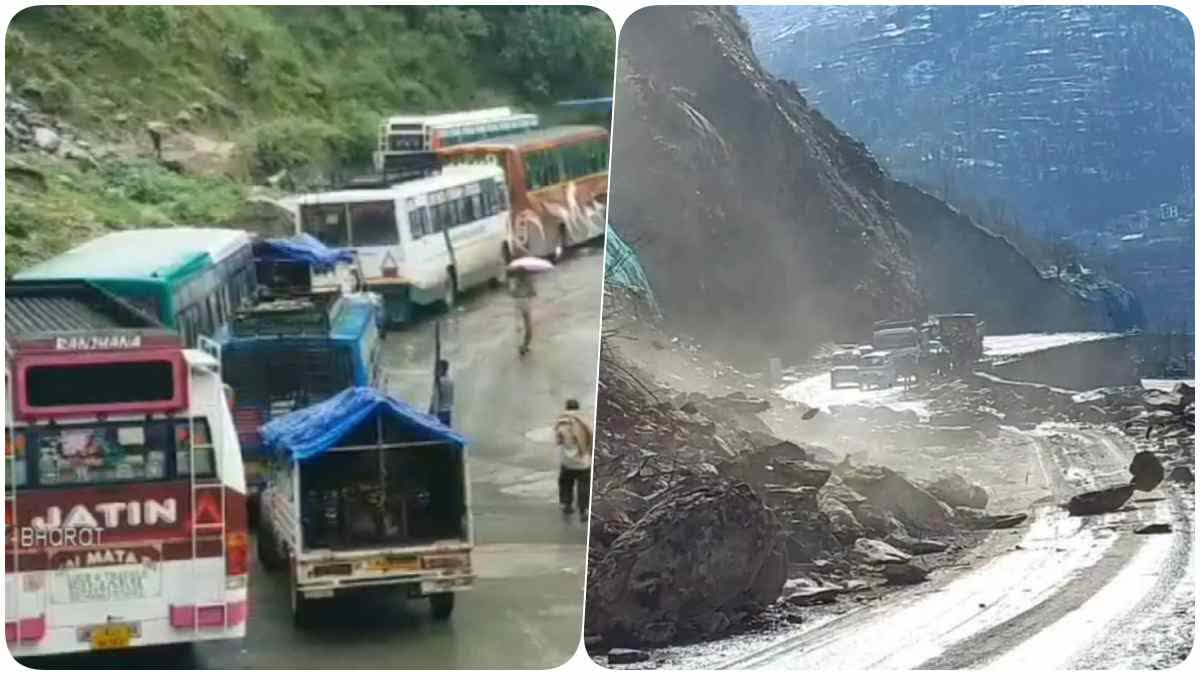Srinagar:The Srinagar-Jammu National Highway, the only artery connecting the Kashmir Valley with the rest of India, has been hit by frequent blockades, leading to the loss of seven months in the last five years, the official documents reveal.
The closure has hit not just trade but also commuters' time, including students, employers, patients, and those who wished to attend social gatherings hosted by relatives in the Valley or outside of Union territory. However, officials believe that the highway situation has improved since last year, reducing travel time between Jammu and Srinagar.
The 250-kilometre-long highway runs through the valley, and the Pir Panjal mountains are most prone to landslides, shooting stones in the mountainous terrain of the Ramban district. The 65-kilometre treacherous stretch from Banihal to Ramban is the most dangerous and frequently remains blocked during inclement weather. Spots like Kela Morh and Panthal Morh, falling in the Ramban tehsil, prone to landslides and shooting stones, are more dangerous, and accidents in this stretch have claimed many lives.
According to the information furnished by the Jammu and Kashmir Traffic Police to a Right to Information (RTI) activist, MM Shuja, the highway was blocked for 223 days since 2019, during which commuters and transporters lost 5413 hours of their travel time.
The highest amount of time lost since 2019 was 58 days (1458 hours) in 2023, while it was 41 days (989 hours) in 2022, 23 days (549 hours) in 2021, 47 days (1138 hours) in 2020, and 54 days (1279 hours) in 2019.
Abrar Ahmad, a prominent trade leader in Kashmir, said that the highway closure increases the transit time of goods, which causes loss to trade in the Valley. Citing an example, he said that a trader in Gujarat will need only 1 crore in capital to start his business, but in Kashmir, he will need 3 crores to set up the same business, as he will need more capital for transportation and logistics.
“We spend more money to transport goods into Kashmir as we are at the last periphery, and the highway is our only means of transportation. In other states, the transit time will be less as people don't face highway blockages there,” Abrar told ETV Bharat.
